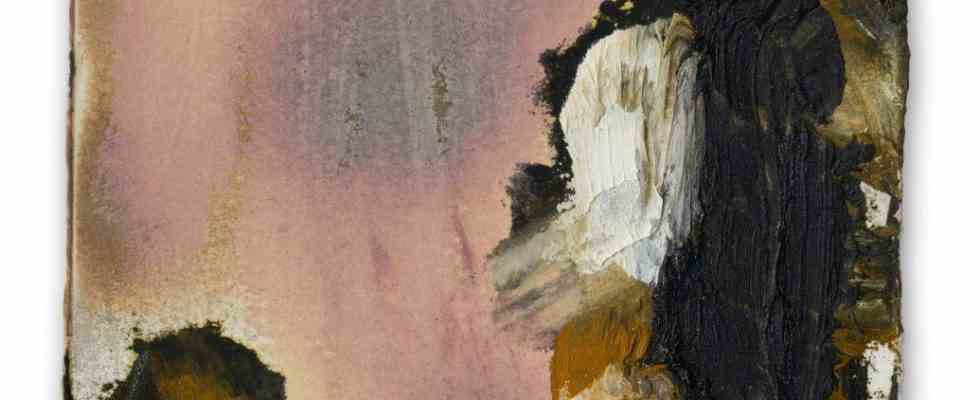“One of us must give up the name human. / I have more in common with every stone, with every amoeba.” The “Dachau Elegies” do not inspire much hope. The illustrated book, a joint work by the writer Norbert Göttler and the painter Horst Thürheimer, tells of human vulnerability, of suffering, cruelty and death. And fits in well with our days, as it hits the current emotional state exactly.
The lamentation is several years old. Göttler already published the elegies in 2014 in a home care publication (“Home in a globalized world”, Volk Verlag). The author’s starting point are the poems of former prisoners of the Dachau concentration camp. The Germanist Dorothea Heiser first published it in 1993 in the book “Mein Schatten in Dachau”. Similar to his literary collage “Dachau, Moabit and back”in which Göttler deals with Albrecht Haushofer, the poet of the Moabit sonnets, he also sees himself as a tracker in the elegies, mixing past and present, his own experiences and thoughts with the texts of the former prisoners.
Göttler, born in 1959, grew up on a farm near Dachau and has known the site of the former concentration camp and later refugee camp – the memorial was not opened until 1965 – since childhood. “I grew up on the edge of the apocalypse,” he recalls in the lament. He now occasionally guides school classes through the memorial. “Remembrance and shudder every two hours … bus after bus they will pick you up to the next destination.”
The lyrical I engages in a conversation with ghostly inmates
But on the day when the elegies begin, the guest bus doesn’t come, as the lyrical self reads with relief from a text message. Still, it doesn’t stay alone, picks up a conversation with three ghostly prisoners who hide quietly in a corner of the entrance room. It follows the pale figures outside into the cold winter air, wandering with them through a terrible landscape of mourning. “Four men on their way through the moor / Outside no one will ever understand us again“/ The weight of death is upon our shoulders…”
Set in italics, the lines of the former prisoners stand out from Göttler’s verses, and in their diversity they testify to the uniqueness of every human being. “Why, Leon, is nobody bending over you? / You’re not dead yet”, he quotes the Czech Eman Faltus, and a little later the Pole Feliks Rak. “My friend Janek went to heaven / but before he breathed his last / he asked me for bread.” At first it was just a few lines from the prisoner that mingled with the author’s world of thoughts, but as the hike progresses the fragments of the poem become longer, and the poet’s angry sadness and desperation intensify.
Painting with the Bunsen burner
Allows many associations: Another pastel (oil pastel, graphite and fire on paper) from the illustrated book “Dachauer Elegien” by artist Horst Thürheimer and poet Norbert Göttler.
(Photo: Horst Thürheimer)
The Munich painter Horst Thürheimer was so impressed by the elegies that he suggested that Göttler compare the text with his pictures and publish it again. His works respond congenially to the complaints. Thürheimer makes injuries visible by working the paper with a Bunsen burner before painting, as it were painting with fire. He then uses oil pastels to apply sparse, dynamic gestures to the somber basic tone on the sheet, green and brown tones predominate. Bushes, tree branches, black moorland, shadowy figures – Thürheimer’s work allows for many associations.
The pictures selected by the painter are all reproduced in their original size, but never take up the entire surface of the roughly DIN A4 volume. Some are almost tiny. And yet they are incredibly intense and have a lasting effect.
Norbert Goettler, Horst Thürheimer: Dachau Elegies. Allitera publishing house. Price: 22.50 euros

